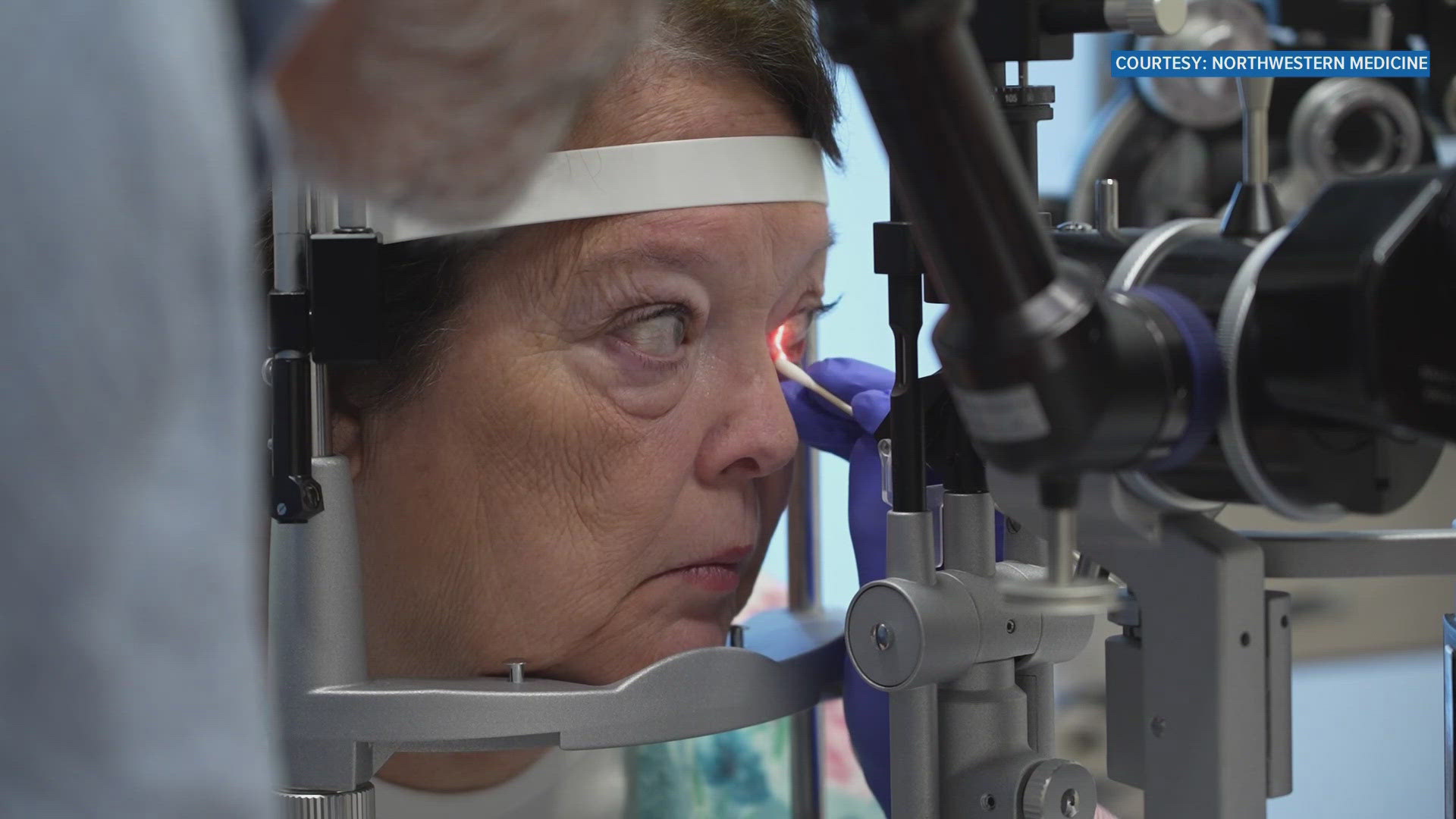KINGSTON, Tennessee — According to the National Organization for Rare Disorders, ocular melanoma affects around five people out of 1 million. Debbie Hensley said her ocular melanoma was caused by a freckle in the back of her eye, that turned into a tumor.
"Having a freckle on the back of the eye is not too uncommon," said Dr. Chris Bowen, the director of ocular oncology at Northwestern Medicine. "I see it a lot. But a freckle is normal and a freckle that we see on our skin, it's not a big deal. A dermatologist will look at it and if they notice that it's growing, if there are irregular shapes, or color changes, then it becomes concerning for a melanoma. And similarly, in the eye, there's about a one in 8,000 chance that the freckle in the eye can turn into melanoma of the eye."
Debbie says she was first referred to a Knoxville retina specialist, then an ocular oncologist in Chattanooga, and that specialist said she could get proton therapy.
"He's wonderful. And he sent me to Chicago, and you know, I just do each thing I've got to do whatever comes next," she said.
Proton therapy for ocular melanoma is only offered in a few places across the U.S., so Debbie said she chose Northwestern Medicine. Bowen said this kind of treatment helps doctors be more precise in treating the cancer and preserve more of the patient's vision.
"Proton therapy is a fantastic way of treating ocular melanoma because we're able to use very minimally invasive surgeries, in order to implant these tiny, tiny little rings around the eye that give us a guidance to where we should aim the proton beam," said Bowen. "And what this does is allows for really, really precise and accurate demarcation of the treatment zone for the melanoma. And what this does is it allows for preserving more of the good retina and the good vision center when it comes to both treating cancer, but also trying to preserve as much vision as possible."
Debbie said she was shocked when she found out she had eye cancer, but she says her faith and medical team helped her through it.
"I never said, 'Why me?' Because, why not me? It could be me as well as anybody," said Debbie. "And, you know, I thought, 'Well, if I lose vision in my left eye, I still have my right eye.' And my faith and trust in my medical team has carried me through."
Debbie said she hopes people learn from her story to get their eyes checked each year.
"It's just really important to have those yearly exams, because had I not gone for that, I wouldn't have any idea. I knew something was wrong. But I didn't know what it was. And shocked — I was shocked," she said.

